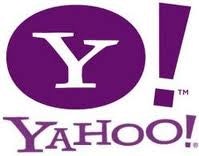CEO Marissa Mayer has dramatically changed the firm’s executive team. While she successfully placed executives,
continued to lose key people.
Though this would favor Yahoo! Inc. (NASDAQ:YHOO)’s turnaround story over AOL, Inc. (NYSE:AOL)’s, as investors, we have to consider the price of a stock relative to measures of its value. We should consider these stocks in the context of their newer, larger competitors that direct traffic manage content on the web.
Facebook Inc (NASDAQ:FB) and Google Inc (NASDAQ:GOOG) should all be considered as alternatives to AOL and Yahoo! Inc. (NASDAQ:YHOO). Which, if any of these stocks are compelling investments?
The departure of chief operating officer Arthur Minson is the latest loss from AOL’s executive team. Tim Armstrong, AOL’s chief executive officer, has been losing managers ever since AOL, Inc. (NYSE:AOL)’s split from Time Warner Cable Inc (NYSE:TWC). News of Minson’s departure was announced after many managers have left the company in previous years including Alex Gounares (technology chief), David Temkin (mobile head), and Brad Garlinghouse (former head of Silicon Valley operations). Minson was made COO of the company in order to streamline operations into consumer product group. In a statement, Minson said, “I came back to AOL three and a half years ago with the goal of returning AOL to being a growth company. With that accomplished, I have decided to stay and continue to work closely with Tim during this transition period. I look forward to AOL’s continued success.”
Minson’s responsibilities will be managed by Susan Lyne while Arianna Huffington will continue to manage AOL’s Huffington Post site and report directly to Armstrong. Although recently AOL, Inc. (NYSE:AOL) recorded its first sales profit and the stock grew 25% this year, it dropped by 3% to around $37 at the end of the day in New York. It is also to be noted that the stock has also gained around 6% this year for the Standard & Poor’s 500 Index.
A positive view for Yahoo!
On the other hand, things are looking up for Yahoo!. It reported a 4% increase in fourth-quarter revenue to $1.2 billion or 32 cents per share, topping analysts’ estimates of $1.21 billion or 28 cents per share and increased sales for the first time in years since 2008 due to buoyant demand for online search. Chief Executive Officer Marissa Mayer said, “Our fourth quarter benefited from user interface improvements on mobile, very strong sales execution as well as favorable macroeconomic and seasonal trends.” Mayer expects the gains to continue into this quarter by coaxing users to linger on a dozen of its popular sites, including Yahoo! Inc. (NASDAQ:YHOO) Finance and mail.
The company wants to improve ad display by investing more in tools that would deliver ad promotions to users based on their browsing history. Stadtler Capital Management President Kevin Stadtler said, “They are really well positioned because they can provide real-time data to advertisers, who can then pinpoint ads to people who are interested in their products. That’s a really big deal.” As the overhaul of Yahoo! Mail resulted in more clicks for ads, Yahoo! hopes to refresh sites such as Yahoo! Finance and Yahoo! News to get customers to interact more and stay in its sites longer.
Still, Yahoo!’s market share which decreased to 9.3% from 11% in 2011, continues to lag behind
Google (NASDAQ:GOOG) with 15%, an increase 2% from 2011 and Facebook Inc (NASDAQ:FB)with 14%. This is not a resounding vote of confidence in Mayer’s Yahoo!.
First-quarter sales, net of revenue partners, is forecast from $1.07 billion to $1.10 billion, short of the $1.12 billion analysts’ projection. Sales for this year are projected to be $4.5 billion to $4.6 billion, also shy of analysts’ estimate of $4.59 billion.
Yahoo! Inc. (NASDAQ:YHOO) added 120 new employees with degrees in computer science to aid planned product innovations. Mayer also brought in Sandy Gould to handle talent acquisition and development. The CEO said, “With the Web becoming so vast, there’s so much content and there’s so much social context, and now with mobile, there’s so much location context and activity context. How do you pull all that together?” With more than 200 million unique mobile users in 2012, the largest web portal wants to deliver personalized web content for its users by creating an “interest graph” from user’s data.
Yahoo!’s revenues decreased as the PC industry shrank. It failed to quickly adapt to the phenomenal rise in smartphone and tablet users, unlike Google and Facebook Inc (NASDAQ:FB), which have been more nimble at responding to consumers’ demand for mobile apps that integrate Web-based services. BGC Partners analyst Colin Gillis said, “If I’m using Yahoo Finance for my stock quotes, don’t make me go find a new app to fill that void on my phone. Because once you do that, you’ve lost a user.”
Peer comparison
There is a wide range of valuations for web search and directory companies:
| Ticker | Company | P/E TTM | Forward P/E | P/S | P/FCF | D/E | EPS Growth Next 5 Years |
| AOL | AOL | 3.39 | 21.83 | 1.31 | 9.57 | 0.05 | 27.1% |
| YHOO | Yahoo! | 6.9 | 18.76 | 5.38 | NA | 0 | 13.9% |
| GOOG | 25.3 | 15.38 | 5.4 | 20.29 | 0.08 | 14.4% | |
| FB | 2772 | 35.09 | 12.98 | 175.15 | 0.2 | 29.2% |
AOL is cheapest based on static valuation metrics: its price-to-free cash flow ratio, price-to-sales, and its price-to-earnings ratio are the lowest on this list. However, analysts anticipate a rough road ahead with a forward P/E of 21.83.
Yahoo! is in a similar situation. Its price-to-earnings ratio from trailing twelve months looks attractive, but net income is expected to drop. Once you move from TTM earnings multiples to estimates for forward earnings multiples, Yahoo! looks like it is priced similarly to Google.
To be clear, this is not a good thing. Google currently trades at a pricey 25.3 price-to-earnings ratio and a high 5.4 price-to-sales multiple.
Facebook’s valuations are very high. Its price-to-sales valuation is rich since shares trade at a 12.98 multiple, substantially higher than the S&P 500 average. Facebook Inc (NASDAQ:FB) shares are trading at an indefensibly high price-to-earnings ratio of 2,772. Investors should stay away from this overpriced stock.
Conclusion
None of these stocks is particularly attractive. AOL, Inc. (NYSE:AOL) is arguably cheap based on sales and cash flows, but the loss of key people is a bad sign. Investors should wait for it to exhibit signs of a turnaround or for it to become much cheaper.
The article 4 “Not-So-Hot” Web Stocks That Are Too Pricey For Your Portfolio originally appeared on Fool.com and is written by Bill Edson.
Copyright © 1995 – 2013 The Motley Fool, LLC. All rights reserved. The Motley Fool has a disclosure policy.






